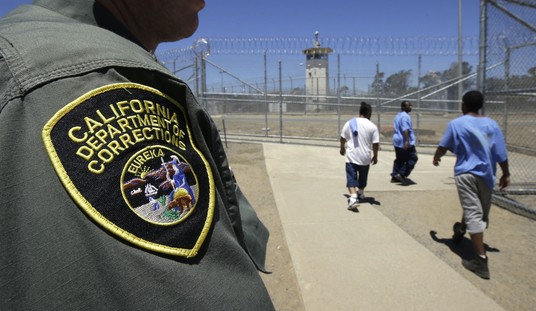Can Chuck Schumer and Joe Biden take advantage of budding support for ending decades of stringent federal prohibition on marijuana? Or will the effort to remove the substance from drug schedules go up in smoke? Bloomberg News sees a narrow path ahead for something more robust than just decriminalization, not long after Biden and the White House fumbled the issue with its staffers:
Majority Leader Chuck Schumer is pushing the Senate toward lifting the federal prohibition on marijuana with legislation that would represent the biggest overhaul of federal drug policy in decades.
The bill that Schumer is drafting with Senate Finance Chair Ron Wyden of Oregon and New Jersey Senator Cory Booker is still being written. Though they avoided the term legalization when announcing their plan, it is expected to remove marijuana from the list of controlled substances and tax and regulate it on the federal level while leaving states able to enforce their own laws regarding the drug.
Their proposal goes beyond decriminalization, which President Joe Biden voiced support for during his campaign, and may be a stretch for some Senate Democrats. But it taps into building public sentiment for legalization and moves by states to change marijuana laws, including Schumer’s home state.
This approach looks very confused. Booker and Wyden want to remove it from federal schedules, which would then leave legalization to the states. However, they still want to regulate and tax marijuana at the federal level, even though much of its use would likely come from locally grown crops. It grows nearly everywhere (hence its “weed” nickname), and would not therefore often cross state lines for distribution. Without it being on the drug schedules, what legitimate jurisdiction would the federal government have to tax and/or control its use? Yes, yes, I know that Wickard v Filburn would apply, but it shouldn’t, especially with reformers arguing to get the federal government out altogether.
Unfortunately for Biden, this comes a little late to rescue his team from its earlier blunder. Apparently hoping to get some hip cred from millennials and younger voters, they announced that previous marijuana use would not be an issue for getting hired — which they planned to accomplish by waiving security clearance requirements. Having a bunch of people in the White House without clearances proved every bit as impractical as everyone predicted, so after people left other job opportunities to take advantage of this amnesty, the Biden administration kicked them out anyway. Had Congress taken marijuana off the schedule before now, prior use wouldn’t have been a problem for clearances.
There’s no doubt that full legalization would be popular, regardless of whether it would be wise. A Pew study from a year and a half ago found two-thirds of Americans supporting full legalization (up from 57% three years earlier), most of whom held that position on recreational as well as medicinal use. While there was a partisan gap on the question, a majority of Republicans (55%) supported legalization, while every other demo had support well over the 60% mark.
And if you don’t like that poll, The Hill conducted its own survey — coincidentally, I’m sure — and dropped the results this afternoon:
Voters are split on whether to legalize marijuana nationwide or to let states decide individually, a new Hill-HarrisX poll finds.
Thirty-eight percent of registered voters in the March 24-26 survey said the federal government should legalize marijuana in the U.S. while 37 percent of respondents said it should be decided at the state level.
By contrast, 25 percent of voters said marijuana should be illegal everywhere in the U.S.
Basically, these are similar to Pew, which asked the question on a federal level. Presumably if you support full legalization or federalism in shifting the question to states, then you support removing marijuana from the drug schedules. That puts support for this proposal at 75%, just a bit higher (pardon the pun) than Pew’s result 17 months ago.
The best option would be to either keep it on the federal schedules but not Schedule 1, or to get the federal government out of it altogether except in cases of specific interstate commerce. Congress being Congress, we can expect Schumer to push legalization with federal strings attached, which means that the cost savings to enforcement will largely not materialize but instead transform into bureaucratic red-tape costs. At least some of those might be offset by taxes, but those will only create more enforcement costs, too. Why not let the states handle it all?








Join the conversation as a VIP Member